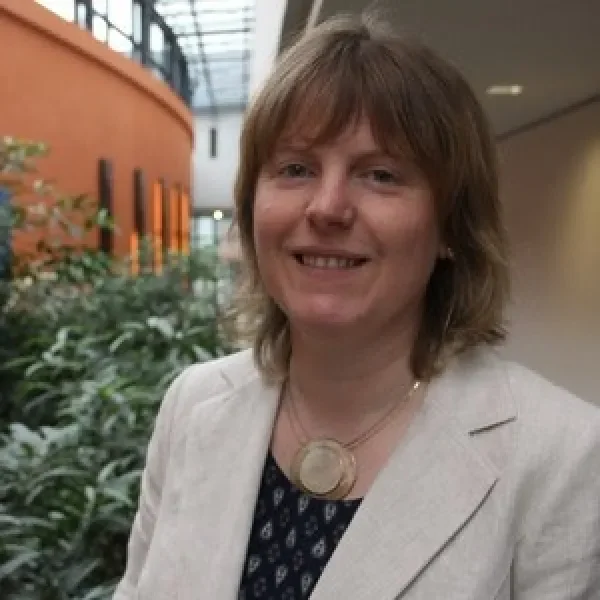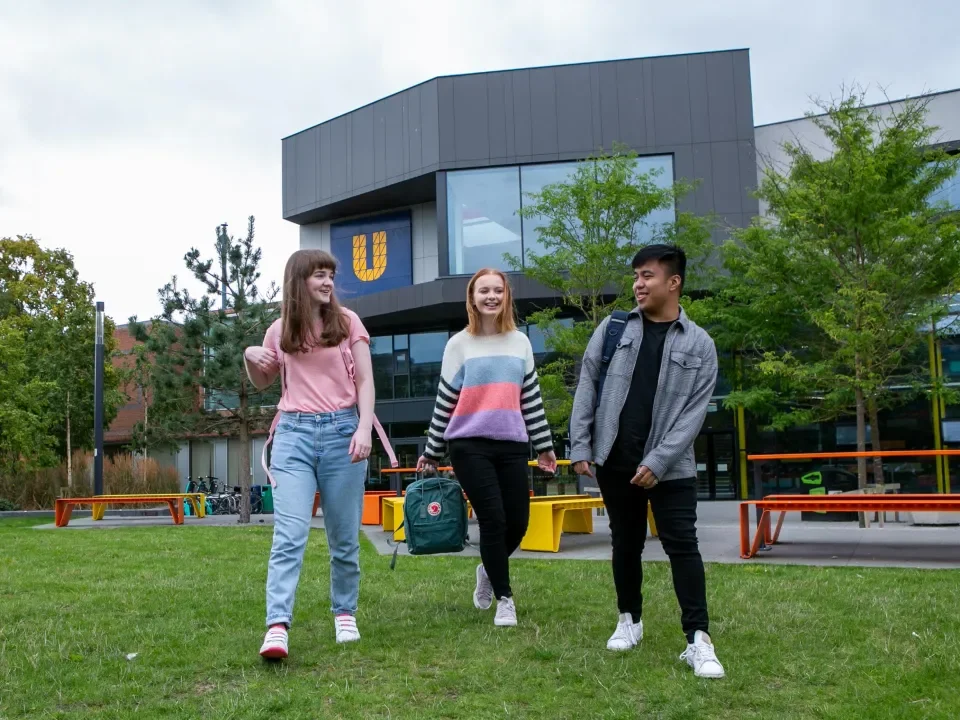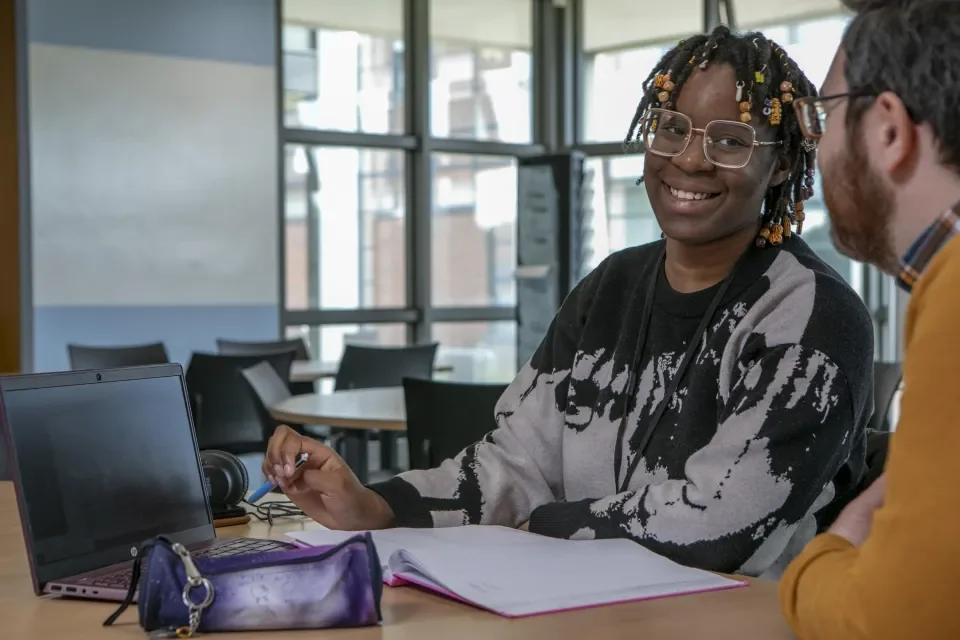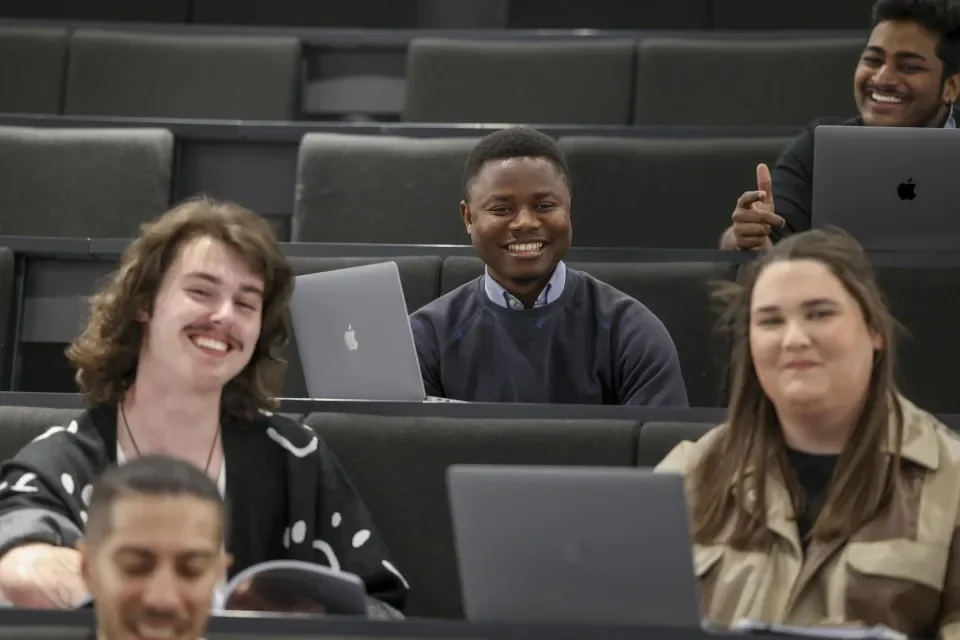Overview
The BSc in Psychology and Mathematics is the first course in Ireland to integrate these subjects, preparing students for a career combining the interpretation of human behaviour with high-level numeracy, analytical and problem-solving skills.
By doing this course, you’ll gain in-depth knowledge and understanding of each discipline alongside a broad critical perspective on contemporary society. You’ll delve into the different fields of psychology along with studying calculus, probability, computing, statistics and data analysis. Research literacy is also a core focus. Moreover, you’ll study applied subjects such as coding and cryptography, which integrate psychology and maths
Vital transferable skills
You’ll also develop a diverse set of transferable skills, all increasingly demanded by Irish and international employers. These include an understanding of human behaviour, critical thinking, problem-solving, research methods, communication, and the ability to disseminate findings to varied audiences.
In third year, you’ll gain practical experience during your INTRA work placement, which could be in neuroscience, finance, health, organisational or corporate psychology, or applied behaviour analysis. Once you graduate, you could go on postgraduate studies (including a qualification in teaching) or pursue a role as a market or financial analyst, a human resource officer or a business consultant, among many other possibilities.
This course has been developed in line with pre-professional Psychological Society of Ireland (PSI) accreditation principles and is accredited by PSI.
Why DCU
DCU People

My first degree was in computer science and I worked in various roles in this field, in Ireland and in the US, for just over 18 years.
Read more about Louise Hopper
Careers & Further Options
Careers
The BSc in Psychology and Mathematics course has been developed in line with pre-professional Psychological Society of Ireland accreditation principles and is currently pending confirmation of PSI accreditation.
This course is accredited by the Psychological Society of Ireland. Graduates will be well placed to undertake further studies and research in Psychology and Mathematics. The course also provides a pathway to a postgraduate qualification in teaching.
- Market/Sales Analyst
- Financial Analyst
- Information Technology
- Human Resource Officer
- Business Consultancy
- Research
- Statistical Analysis
DCU graduates are highly sought after by employers. Our Graduates work in environments ranging from large multinationals to SMEs, family businesses and start-ups across every sector.
DCU Careers Service has a number of learning and development initiatives in place for our students, giving them the skills they need for a successful career path.
Entry Requirements
In addition to the general entry requirements for admission to the university the following entry requirements apply
Minimum of H3 in Mathematics
In addition to the general entry requirements for admission to the university the following entry requirements apply
Minimum of H3 in Mathematics
In addition to the general entry requirements for admission to the university the following entry requirements apply
GCE A Level B Mathematics
*** New QQI FET Route for entry September 2025 ***
Details of entry requirements per the CAO Alerts list, or available from mid November on cao.ie here
Mature entry is a competitive process. Applicants must demonstrate:
- a genuine interest in the programme(s) they are applying for
- academic experience and competency in their chosen field of study
- an ability to engage and succeed on the programme
All applicants must complete a statement of interest to be considered for the mature application route
For further guidance on completing your mature CAO application please click here
Additional Requirements
This programme requires evidence of competency in Math's , which would equate to a H3 or 5N0556 Math's for Stem with distinction. This requirement is essential for this programme. Applicants can show their strength in this through formal examinations e.g. school leaving examinations, QQI-FET, access programmes, other third level. If applicants don’t have any relevant examinations, they may be able to meet the requirements through their work and life experience, applicants must give examples of this experience to demonstrate their competency in these areas in their personal statement.
No Entry Path
International candidates are expected to have educational qualifications of a standard equivalent to those outlined above. In addition, where such candidates are non-native speakers of the English language they must satisfy the university of their competency in the English language. For further information on international applications click here.
Course Structure
- Philosophy of Psychology
- Personality
- Cognition
- Psychology Research Skills 1
- Social Psychology
- Probability
- Calculus and its applications
- Programming for Mathematics
- Introduction to R
- Linear Mathematics
- Child Development
- Psychology Research Skills 2
- Biological Psychology
- Calculus of several variables
- Statistics
- Psychological Assessment and Measurement
- Sequences and Series
- Linear Mathematics 2
- Cognition across the Lifespan
- Lifespan Development
- Psychological Health, Difficulties and Disorders
- Psychology Research Skills 3
- Financial and Actuarial Data Analysis
- Discrete Mathematics
- Working in Psychology
- INTRA
Year 3 Options
- Linear Algebra
- Abstract Algebra
- Modelling with Differential Equations
- Social Psychology and Contemporary Issues
- Psychological Health, Difficulties and Disorders
- Neuropsychology
- Psychology Research Project
Year 4 Options
- Computational Psychiatry
- Advanced Psychometric Profiling
- Numerical Methods
- Analysis
- Partial Differential Equations
- Coding and Cryptography
- Geometry
- Optimisation
- Deep Learning
Fees and Funding
Fees
How To Apply
Apply through the Central Applications Office (CAO) by 1st February or 1st May
To apply for this programme:
Candidates should apply directly here. Here's a quick step by step guide if you need help with your application.
Please provide
- Academic Transcripts for each and every year of study with English translation, if applicable.
- If applicable, provide evidence of competence in the English language as per DCU entry requirements.
Applications are accepted on an ongoing basis up to 1st July. All Non-EU candidates are advised to apply early, as places are limited.
All mature applicants apply through the CAO by 1st February. For further information and for special application procedures for mature students, please click here
No entry path
Please see Application Procedures or E-mail ugadmissions@dcu.ie.
Candidates submitting EU examination results are required to apply through the CAO at www.cao.ie.
Candidates submitting non-EU examination results are required to apply directly here.
Life On Campus
At DCU, our students can expect a unique campus experience. We are known for our excellent teaching and learning facilities, our active clubs and societies, and our great social and sporting facilities. All this makes DCU an exciting place to be.
DCU has three academic campuses; Glasnevin, St. Patrick’s and All Hallows (both in Drumcondra), all close to Dublin City centre.
They can be reached by public transport, Dublin Bus and Bus Éireann, with our Drumcondra campuses a ten minute walk from Drumcondra Train Station. Glasnevin is a 20 minute walk from St Patrick’s and All Hallows. They are also linked by Dublin Bus.
Each campus has a library (O’Reilly, Cregan and Woodlock Hall), study spaces, restaurants, and on-campus residencies. There are sports facilities on Glasnevin and St. Patrick’s, and there is a dedicated sports campus, St Claire’s, located near Glasnevin on the Ballymun Road.
DCU’s 19,000 students have access to exceptional teaching and learning facilities across our three academic campuses.
These include modern learning theatres, research centres, a new media and TV studio, radio/podcast studios, computer suites and advanced labs in the areas of Languages, Engineering, Physics, Chemistry and Biotechnology, as well as a Sports Performance centre and a training hospital ward. In 2021, we opened our first virtual reality ‘Leadership Lab’, which is located in our Business School.
We continue to improve and update our facilities. For example, construction of a new world-class STEM facility is underway on the Glasnevin campus. With capacity for an extra 3,000 STEM students, this facility will advance DCU’s international reputation for excellence in science and health, computing and engineering disciplines.
Studying in DCU isn’t just about course work. The university is rich in student life and activities.
There are more than 140 clubs and societies for students in DCU, with ‘Clubs & Socs’ days taking place on both the Glasnevin and Drumcondra campuses at the start of the academic year. They span everything from rugby to rock climbing, anime to jazz.
For many students, sport is an important part of the DCU experience. DCU’s Sports Complex boasts a 25 metre swimming pool, fitness centre gym, all-weather pitches and squash courts, as well as soccer, GAA and rugby pitches. DCU Dóchas Éireann, the university’s GAA club, is the largest third level Gaelic Games club in the country. Meanwhile, DCU Athletics has been Ireland’s highest achieving university club for many years. And DCU has dozens of other clubs to get involved in, from Archery to Weightlifting.
The Glasnevin campus is home to our purpose built, state-of-the-art student centre, The U, which serves the needs of a rapidly growing student body. Here, you will find the Student Leadership and Lifeskills Centre, performing arts and cultural spaces for students and the wider community, and the Entrepreneurship and Innovation Hub. Also located on our Glasnevin campus is The Helix, our renowned performing arts centre.
On our St Patrick’s campus, we have the Java Student Hub, a vibrant, warm and welcoming space where students can meet for coffee, play music, use the projector to watch events, or just relax. The walls of the Java Hub were designed based on the cultural history of St Patrick’s Campus, including the special references to the notable sporting history and history of the arts.
We have a number of academic, professional and social supports for students.
Student Advice & Learning Skills Centre - Offers a wide range of supports and services to students and advice
The Writing Centre - drop-in writing workshops for students through the academic year
Maths Learning Centre - provides maths support for students of all ability levels with maths modules
Student Learning - facilitate the transition from passive to active learning for students at DCU, by teaching study skills, nurturing critical thinking and building student confidence.
Careers work with students to help them on their professional journey into graduate employment.
Our student support team offers a comprehensive support programme, helping students make that all important transition into university life and focusing on building confidence and skills which are key to success at third level.

DCU Glasnevin Campus
FAQs
Is DCU all one campus?
DCU is a multi campus university - the Glasnevin, St Patrick's and All Hallows campuses. The St Patrick's campus is where the Education courses are taught and some of the subjects from the BA Joint Honours degree. There is a 20-25 minute walk between the campuses but there are buses and bikes available to go between them also.
Click here to see maps of all of our campuses
If I'm studying on the St Patrick's campus, can I use the library and sports centre on the Glasnevin campus?
Yes, all facilities such as sports and accommodation are open for all DCU students to avail of.
Are there libraries in DCU and if they have wifi and work stations?
We have a brand new state of the art four floor library on our St. Patrick's Campus which complements the existing library on the Glasnevin campus. There is free wifi, work stations as well as desktop computers.
Does DCU provide accommodation?
DCU does have on-campus accommodation for undergraduate and postgraduate students, and you can find out more and apply via the Accommodation Office webpage.








